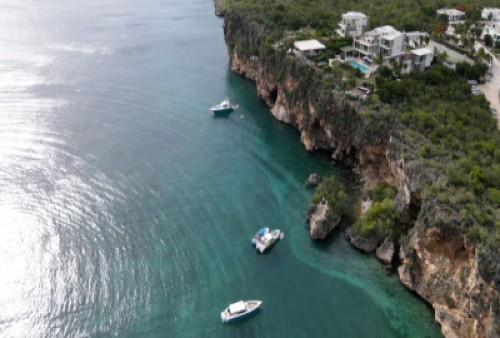CASTRIES, St. Lucia – The Organisation of Eastern Caribbean States (OECS) Tuesday said it is taking a critical look at its common tourism policy following a high-market demand and sustainable travel heightened in the post COVID-19 environment.
 The existing policy dates back to 2011 and the new, updated version seeks to develop a fully comprehensive and pragmatic policy that supports competitiveness, balanced growth and sustainability, introducing new areas of opportunities specifically within the blue economy.
The existing policy dates back to 2011 and the new, updated version seeks to develop a fully comprehensive and pragmatic policy that supports competitiveness, balanced growth and sustainability, introducing new areas of opportunities specifically within the blue economy.
The tourism policy update is funded by the World Bank’s nine million US dollar “Unleashing the Blue Economy of the Caribbean” (UBEC) initiative with the nine-member sub-regional grouping.
It aims to provide guidance on sustainable tourism development, harnessing the potential of the blue economy, and climate-smart and resilience policies to foster prosperous and more equitable tourism industries.
The OECS Commission, through the UBEC project, has acquired consultancy services that will use consultation, policy analysis, tourism development expertise, institutional strengthening, research in climate resilience and enterprise development in the blue economy to support the update of the OECS Common Tourism Policy.
Following the first stakeholders engagement by the St. Lucia-based OECS Commission with senior tourism officials late last month, it was agreed that effective stakeholder engagement is a critical component to the work to be undertaken.
The consultative process is set to be robust and extensive, and it will be spearheaded by the OECS Commission. A wide cross section of tourism stakeholders will be engaged and a Tourism Policy Task Force comprising senior tourism officials and an internal technical committee with input from the economic development, regional integration and environment units of the OECS Commission, will form part of the governance and monitoring structure for the development of the policy.
“With high dependencies on tourism for economic growth, we need to ensure that we have a tourism policy in place which emphasizes balanced growth and development, greater community participation and increased benefits to local communities as mandated by the Revised Treaty of Basseterre,” said the OECS Director General, Dr. Didacus Jules.
“We will ensure that we have stakeholder input from across the tourism value chain. The OECS Commission will be on-site in our member states to collaborate and communicate with tourism beneficiaries. We anticipate that the final tourism policy will guide the OECS Commission’s tourism work for the benefit of our member states,” he added.
The OECS Common Tourism Policy is one of several initiatives being conducted under the UBEC project to support regional tourism. Other activities scheduled to be implemented in 2024 include the development of standards for beaches, marinas and boat operators as well as the implementation of joint tourism marketing around blue tourism.
The OECS Commission launched the regional component of the UBEC project on November 9, 2022. The project was designed to be implemented as a Series of Projects (SOP) over a 15-year period.
The SOP is segmented into three phases with each lasting five years. The Commission’s involvement with the UBEC project falls within phase one of the SOP which is to be implemented between fiscal years 2022 and 2028.
This phase will be implemented in Grenada, St. Lucia, and St. Vincent and the Grenadines.


